
Green Chemical Engineering
Scope & Guideline
Innovating chemical engineering for a sustainable future.
Introduction
Aims and Scopes
- Sustainable Process Design:
Focuses on the development of processes that utilize renewable resources, reduce waste, and lower energy consumption, thereby promoting sustainability in chemical engineering. - Green Catalysis:
Explores novel catalytic systems that enhance reaction efficiency while utilizing less hazardous materials, aiming to reduce the environmental footprint of chemical reactions. - Biomass Conversion and Utilization:
Investigates methods for converting biomass into valuable chemicals, fuels, and materials, emphasizing the importance of renewable feedstocks in a circular economy. - Environmental Impact Assessment:
Incorporates life cycle assessments and environmental evaluations to gauge the sustainability of chemical processes and products, guiding researchers towards greener alternatives. - Advanced Materials for Chemical Engineering:
Examines the development and application of new materials, such as ionic liquids and metal-organic frameworks, that facilitate more efficient and sustainable chemical processes. - Machine Learning and Computational Methods:
Utilizes machine learning and computational techniques to optimize chemical processes, enhance reaction predictions, and develop innovative materials, bridging the gap between traditional chemical engineering and modern data-driven approaches.
Trending and Emerging
- Machine Learning in Chemical Engineering:
The integration of machine learning techniques into chemical engineering research is gaining momentum, enabling enhanced process optimization, predictive modeling, and data analysis. - Ionic Liquids and Deep Eutectic Solvents:
Research on ionic liquids and deep eutectic solvents is on the rise, showcasing their potential as sustainable alternatives for traditional solvents in various chemical processes. - Photocatalysis and CO2 Utilization:
The application of photocatalysis for CO2 reduction and other sustainable chemical transformations is increasingly prevalent, reflecting a growing interest in harnessing solar energy for chemical processes. - Biosynthesis and Biomanufacturing:
Emerging themes in biosynthesis and biomanufacturing demonstrate a shift towards utilizing biological systems for the production of chemicals, emphasizing sustainability and renewable resources. - Advanced Material Development:
There is a trend towards developing advanced materials, such as nanostructured catalysts and functionalized polymers, which enhance the efficiency and sustainability of chemical processes. - Waste Valorization Techniques:
Research on innovative waste valorization techniques, which convert waste materials into valuable products, is gaining traction, aligning with circular economy principles.
Declining or Waning
- Traditional Solvent Systems:
There has been a noticeable reduction in research focused on traditional solvent systems in favor of more innovative and sustainable solvent alternatives, such as deep eutectic solvents and ionic liquids. - Conventional Catalytic Processes:
Research on conventional catalytic processes has decreased as the field moves towards more innovative and sustainable catalytic systems that utilize less toxic and more efficient materials. - Single-Use Plastics and Conventional Materials:
The focus on single-use plastics and conventional materials is waning as researchers increasingly prioritize biodegradable and renewable materials that align with sustainability goals. - Basic Chemical Processes:
There is a declining emphasis on basic chemical processes that do not incorporate sustainability principles, highlighting the journal's shift towards more complex and innovative approaches. - Generalized Environmental Assessments:
General environmental assessments without a specific focus on life cycle impacts or sustainability metrics are becoming less common, as the field demands more rigorous and detailed evaluations.
Similar Journals
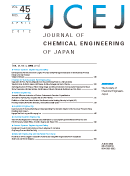
JOURNAL OF CHEMICAL ENGINEERING OF JAPAN
Pioneering Insights in the Heart of Chemical EngineeringJOURNAL OF CHEMICAL ENGINEERING OF JAPAN is a distinguished academic publication in the field of chemical engineering and chemistry, published by Taylor & Francis Ltd. With its ISSN 0021-9592 and E-ISSN 1881-1299, this journal has been a vital resource for researchers and practitioners since its inception in 1968 and continues to provide essential insights and advancements through 2024. The journal operates under an Open Access model as of 2023, promoting wider dissemination of research findings and encouraging collaboration within the global scientific community. Currently categorized in the Q4 quartile for both Chemical Engineering and Chemistry (miscellaneous) in 2023, it ranks within the lower percentiles of its respective fields, offering a platform for emerging scholars to publish their work and gain visibility. As part of Japan's academic landscape, it addresses numerous aspects of chemical engineering, fostering innovation and technical development that contribute to the industry's growth. Engaging with this journal is paramount for those looking to stay informed on the latest research trends and applications in chemical processes.

KOREAN JOURNAL OF CHEMICAL ENGINEERING
Exploring New Frontiers in Chemical Innovation.The Korean Journal of Chemical Engineering is a prestigious publication by the Korean Institute of Chemical Engineers, dedicated to advancing the field of chemical engineering and its associated sciences. Established in 1984, this journal has made significant contributions to the dissemination of innovative research, covering a broad spectrum of topics within chemical engineering and general chemistry. With a current impact factor placing it in the Q2 quartile within both the chemical engineering and chemistry categories, it is recognized for its rigorous peer-review process and high-quality articles. The journal provides a valuable platform for researchers, professionals, and students to share their findings and collaborate on emerging methodologies and technologies. Although it does not offer open access options, its broad international readership, bolstered by its Scopus rankings — including a commendable #108 in general chemical engineering — ensures widespread visibility and dissemination of published works. As it approaches its 40th anniversary in 2024, the Korean Journal of Chemical Engineering continues to be an essential resource for anyone engaged in the field, driving innovation and academic dialogue worldwide.
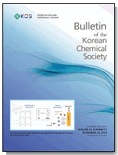
BULLETIN OF THE KOREAN CHEMICAL SOCIETY
Fostering excellence in diverse chemical research.BULLETIN OF THE KOREAN CHEMICAL SOCIETY, published by WILEY-V C H VERLAG GMBH, is a prominent journal in the field of chemistry, with a specific emphasis on miscellaneous chemical research. With an ISSN of 0253-2964 and E-ISSN 1229-5949, this journal serves as a pivotal platform for researchers, professionals, and students who are eager to showcase innovative studies that address both foundational and emerging topics in the discipline. Boasting a commendable Q2 ranking in the 2023 chemistry quartiles, the journal ranks within the top 50th percentile in Scopus, reflecting its commitment to high-quality scientific discourse. The content published within its pages from 1996 to 2024 covers a vast array of subjects, ensuring a multidisciplinary approach to chemical research. The journal’s impact in the academic community is underscored by its accessibility to a global audience, making it an essential resource for those wishing to stay at the forefront of chemical advancements.
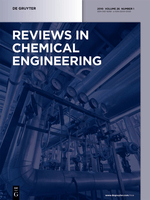
REVIEWS IN CHEMICAL ENGINEERING
Pioneering Insights for Tomorrow's Technologies.REVIEWS IN CHEMICAL ENGINEERING, published by Walter de Gruyter GmbH, is a premier journal that delivers cutting-edge insights and comprehensive reviews in the field of chemical engineering. Established as an eminent resource since 1982, this journal is committed to advancing knowledge and fostering innovation in various domains of chemical engineering, including process design, materials, and environmental considerations. With an impressive Q1 ranking in the 2023 Scopus category for Chemical Engineering and a commendable 20th position out of 273 journals, it is recognized for its rigorous peer-review process and high-impact contributions. Although it operates under a subscription model, the journal remains a vital platform for researchers and professionals aiming to stay at the forefront of technological advancements and scholarly discourse in chemical engineering. With a focus on interdisciplinary applications and real-world relevance, REVIEWS IN CHEMICAL ENGINEERING is an indispensable resource for academics, industry professionals, and students dedicated to excellence in this field.
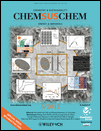
ChemSusChem
Pioneering Research for a Greener FutureChemSusChem is a premier interdisciplinary journal, published by WILEY-V C H VERLAG GMBH, that focuses on the critical fields of Chemical Engineering, Energy, Environmental Chemistry, and Materials Science. Since its inception in 2008, the journal has consistently maintained a Q1 ranking across multiple categories, highlighting its role as a vital resource for researchers and professionals dedicated to advancing sustainable chemical processes and technologies. With an impressive impact factor, it ranks 12th in General Chemical Engineering and is highly regarded within its scopes, indicating the journal's commitment to publishing high-quality, innovative research that addresses global challenges in energy and environmental sustainability. Though it operates on a subscription model, its contributions are essential for those in academia and industry seeking cutting-edge developments in sustainable chemistry. As it approaches its convergence span through 2024, ChemSusChem continues to shape the future of sustainable chemistry, making it a must-read for students, researchers, and practitioners alike.
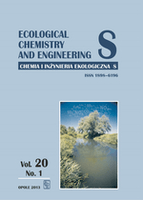
Ecological Chemistry and Engineering S-Chemia I Inzynieria Ekologiczna S
Fostering Interdisciplinary Collaboration for a Greener TomorrowEcological Chemistry and Engineering S, a prominent journal in the field of Environmental Chemistry and Engineering, provides a platform for innovative research and critical discussions surrounding ecological solutions and sustainable practices. Published by SCIENDO, this peer-reviewed journal is accessible to researchers and professionals dedicated to advancing our understanding of ecological systems and sustainable engineering practices. With an ISSN of 1898-6196 and an E-ISSN of 2084-4549, the journal has established itself in the academic community, reflected by its Q3 ranking in both Environmental Chemistry and Environmental Engineering categories as of 2023. Covering significant advancements from 2008 to 2024, it serves as an essential resource in advancing knowledge and fostering collaborations within interdisciplinary fields. Despite not offering open access, the journal remains an invaluable resource for researchers and students aiming to contribute to ecological sustainability strategies worldwide.

Journal of Industrial and Engineering Chemistry
Elevating Knowledge in Chemical Engineering PracticesThe Journal of Industrial and Engineering Chemistry, published by Elsevier Science Inc, stands as a premier platform since its inception in 1996, dedicated to the dissemination of innovative research in the field of Chemical Engineering. Located in South Korea, this influential journal has established itself with an impressive impact factor and is categorized in the Q1 quartile for chemical engineering (miscellaneous), ranking in the top 12% of its category according to Scopus. With a focus on cutting-edge industrial applications, the journal covers a diverse range of topics including chemical processes, engineering innovations, and sustainable practices, appealing to a broad spectrum of researchers, professionals, and students. Although currently not open access, the journal offers a wealth of resources for advancing knowledge and driving forward the chemical engineering discipline. The converged years from 1996 to 2024 reflect its ongoing commitment to excellence and timeliness in publishing high-quality research.

Chemical Product and Process Modeling
Transforming chemical processes with cutting-edge modeling techniques.Chemical Product and Process Modeling is a vital academic journal published by WALTER DE GRUYTER GMBH, focusing on the intricate intersection of chemical engineering and mathematical modeling. Since its inception in 2006, this journal has been instrumental in disseminating significant research findings and methodologies that advance the modeling and simulation of chemical products and processes. With an ISSN of 1934-2659, it caters to a global audience from its base in Berlin, Germany. Although positioned within the Q3 and Q4 quartiles in Chemical Engineering and Modeling & Simulation categories respectively in 2023, it offers a platform for innovative approaches and contributions in these fields, making it a resource for researchers and industry experts alike. Access to the journal's content is offered through subscription models, enabling professionals and academics to stay abreast of the latest developments. In a rapidly evolving scientific landscape, Chemical Product and Process Modeling remains dedicated to enhancing knowledge and fostering collaboration within the chemical engineering community.

Catalysis in Industry
Empowering researchers to transform chemical engineering.Catalysis in Industry, published by MAIK NAUKA-INTERPERIODICA, is a pivotal journal in the field of chemical engineering and catalysis. With its ISSN 2070-0504 and E-ISSN 2070-0555, this journal has been dedicated to advancing the understanding and application of catalytic processes in industrial settings since its inception in 2010. Despite its Q4 ranking in the category of Catalysis as of 2023 and a Scopus rank of #61/68, the journal serves as a valuable platform for researchers and practitioners to disseminate innovative ideas and findings that contribute to the evolution of catalysis technology. Published in Russia, Catalysis in Industry aims to bridge the gap between academic research and industrial practice, providing Open Access options to facilitate widespread accessibility and encourage a collaborative approach to chemical engineering challenges. As the industry grapples with the demand for sustainable solutions and efficient processes, this journal remains a critical resource for the academic community, aspiring professionals, and students eager to deepen their knowledge in catalytic applications.
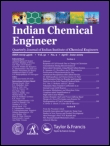
Indian Chemical Engineer
Shaping Tomorrow's Chemical Engineers Today.Indian Chemical Engineer, published by Taylor & Francis Ltd, stands as a reputable journal in the field of chemical engineering, encompassing a wide range of topics pertinent to both academia and industry. With an ISSN of 0019-4506 and an E-ISSN of 0975-007X, this journal has been a key resource for researchers and professionals since its inception in 1992, undergoing a significant evolution from 2009 to 2024. Currently ranked in the Q3 category of chemical engineering (miscellaneous) in 2023, it reflects a dedicated commitment to disseminating innovative research and insights within the discipline. The journal is indexed in Scopus, achieving a rank of 148 out of 273, which denotes its growing influence in the field with a 45th percentile placement. Although currently not an open-access publication, it offers valuable content that contributes extensively to the advancement of chemical engineering research and education. Researchers, professionals, and students alike are encouraged to engage with this publication to stay at the forefront of industry advancements and academic discussions.